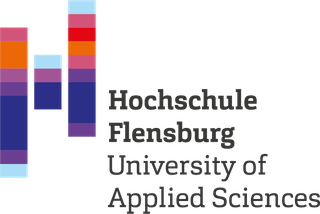Publikationen
2022
- Vest, A. (2022). Planetarium Talks: Extra dimensions and microscopic black holes.
Service Learning as an Approach to Teaching Small Business Management
Behrends, T., & Binder, L. (2022). Service Learning as an Approach to Teaching Small Business Management. In International Case Studies in Service Learning (Bd. 47, S. 99–115,). Emerald Publishing Limited. http://doi.org/10.1108/S2055-364120220000047007Abstract
Exportformate
Weiterführende Links
Filter Tags
Quick Start - Programmieren lernen C#
Cordts, S., & Nasutta, M. (2022). Quick Start - Programmieren lernen C#. mana-Buch Verlag.Exportformate
Weiterführende Links
Filter Tags
LSP Teacher Training Summer School . The TRAILs project
Chateaureynaud, M.-A. (Hrsg.). (2022). LSP Teacher Training Summer School . The TRAILs project. Champs Didactiques Plurilingues : données pour des politiques stratégiques (Bd. 13, S. 280). Brüssel (Belgien): Peter Lang. http://doi.org/10.3726/b20096Abstract
Exportformate
Weiterführende Links
Filter Tags
Finanzierungs- & Förderangebote für Ecopreneure
Neumann, T., Widrat, A., & Fichter, K. (2022). Finanzierungs- & Förderangebote für Ecopreneure. Gründerplattform. Abgerufen von https://cdn.kettufy.io/gp.kettufy.io/documents/gruenderplattform.de/Material-3_Broschuere-FinanzierungFoerderungangebote.pdfExportformate
Weiterführende Links
Filter Tags
Parametric optimization and comparative study of an organic Rankine cycle power plant for two-phase geothermal sources
Chen, C., Witte, F., Tuschy, I., Kolditz, O., & Shao, H. (2022). Parametric optimization and comparative study of an organic Rankine cycle power plant for two-phase geothermal sources. Energy, 123910. http://doi.org/https://doi.org/10.1016/j.energy.2022.123910Abstract
Exportformate
Weiterführende Links
Filter Tags
Kompetenzen für eine digitale Welt: Nutzerorientierte Softwareentwicklung im Projektunterricht
Bertel, S. (2022). Kompetenzen für eine digitale Welt: Nutzerorientierte Softwareentwicklung im Projektunterricht. Lehrkräftebildung weiterdenken (Workshop der Joachim Herz Stiftung). Leipzig, Germany: Institut Didaktik der Chemie, Universität Gießen.Abstract
Exportformate
Weiterführende Links
Filter Tags
Forecasting TCP s Rate to Speed up Slow Start
Lübben, R. (2022). Forecasting TCP s Rate to Speed up Slow Start. IEEE Open Journal of the Computer Society, 1–9. http://doi.org/10.1109/OJCS.2022.3208701Exportformate
Weiterführende Links
Filter Tags
Good Tech and Social Good: Value Creation by Korean Social and High-Tech Oriented Start-Ups
Berg, S.-H., & Mitra, J. (2022). Good Tech and Social Good: Value Creation by Korean Social and High-Tech Oriented Start-Ups. Volume 8 Issue 1, 8(1), 29–45,. Abgerufen von https://EconPapers.repec.org/RePEc:sae:jouent:v:8:y:2022:i:1:p:29-45Abstract
Exportformate
Weiterführende Links
Filter Tags
Exploring the Measurement Lab Open Dataset for Internet Performance Evaluation: The German Internet Landscape
Lübben, R., & Misfeld, N. (2022). Exploring the Measurement Lab Open Dataset for Internet Performance Evaluation: The German Internet Landscape. Electronics, 11. http://doi.org/10.3390/electronics11010162Abstract
Exportformate
Weiterführende Links
Filter Tags
